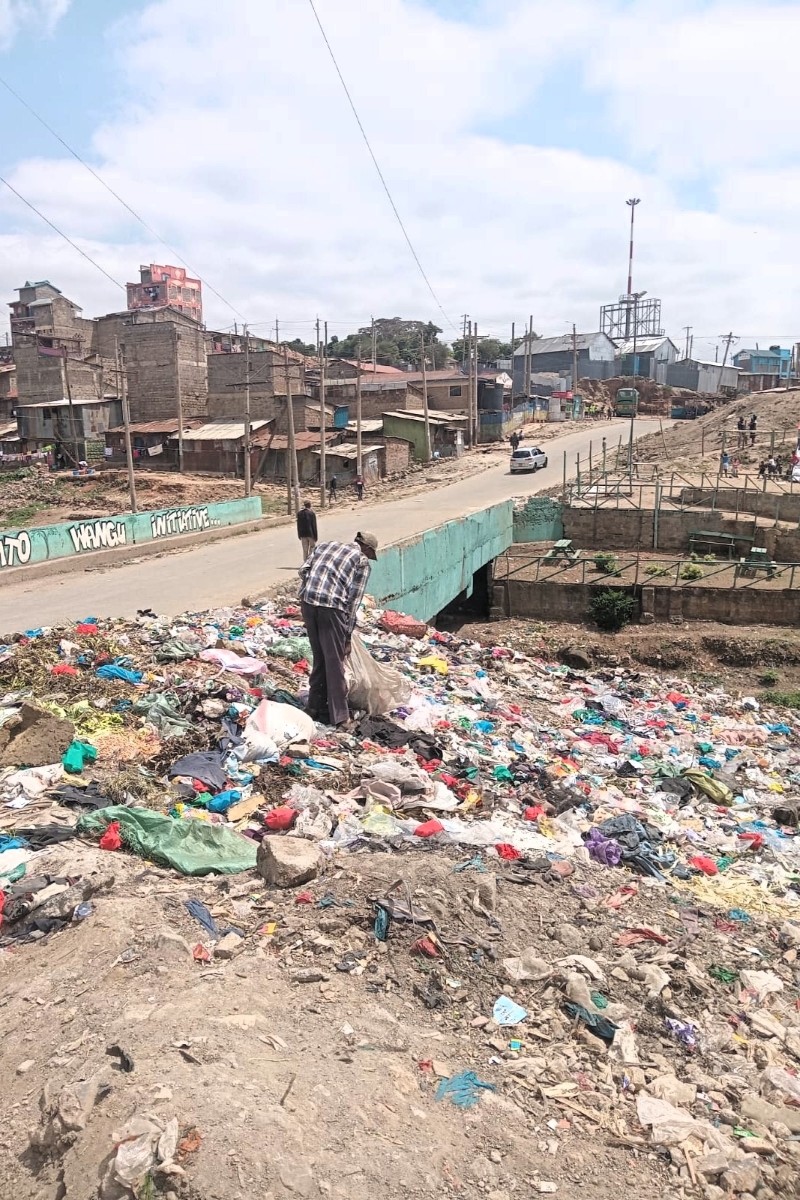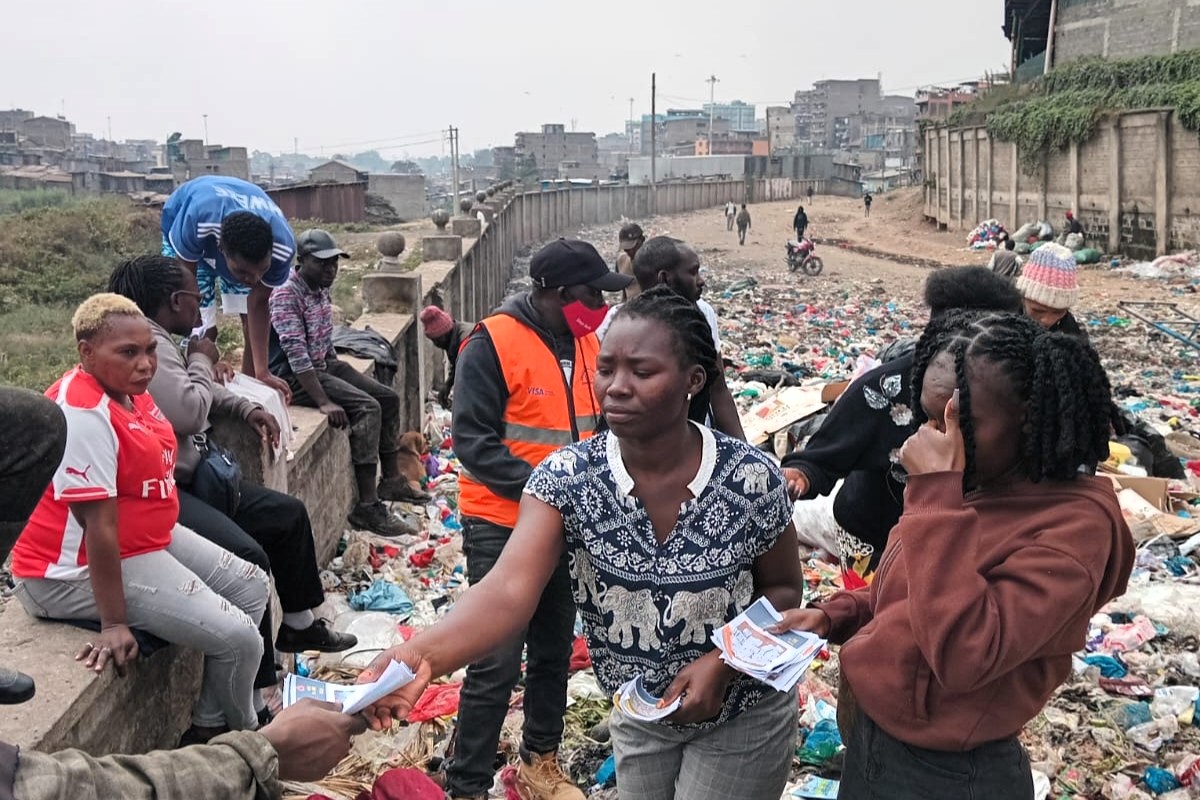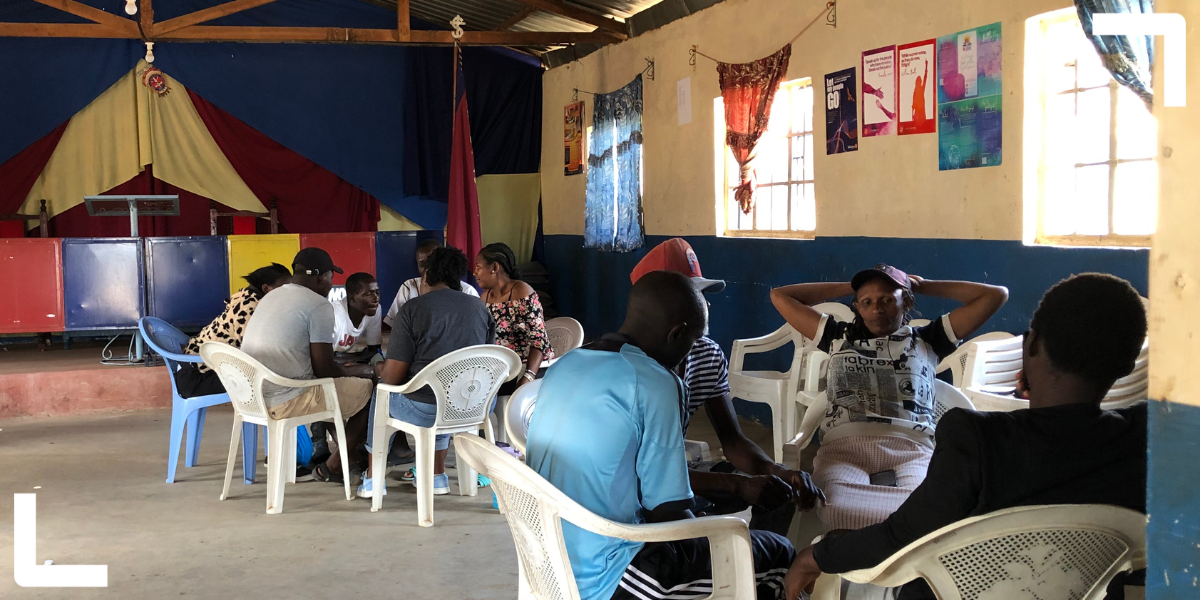By Jerry Okal and Jack Makau
The Evidence Fund Early Market Engagement (EME) event, organised by the Foreign, Commonwealth and Development Office (FCDO) and PricewaterhouseCoopers (PwC), gathered a diverse group of policymakers, researchers, academics and practitioners together in Nairobi earlier this year.
The aim was to enhance discussions on inclusive and locally grounded research and evaluation approaches. The focus of this engagement was to clarify research priorities and the application process of the evidence fund, showcase exemplars for creative ways of research dissemination, and explore ways of shaping equitable research partnerships – and redefining the ways in which knowledge is sourced, appraised and valued.
The Evidence Fund (EvF), supported by FCDO’s East Africa Research and Innovation Hub (EARIH), is increasingly recognised as a vital tool for promoting evidence-based decisionmaking in alignment with the UK’s development goals. Emmeline Skinner, FCDO’s adviser on evidence, innovation and inclusion, set the tone for this session by discussing the challenges within the current funding landscape. She emphasised the importance of utilising limited funding to achieve greater impact and build stronger local research ecosystems.
Localising research?
Emmeline raised several critical questions, including:
> How can we collectively address the power dynamics that influence funding for research organisations?
> Who determines the research agenda, and what topics should we focus on?
> How can we ensure that local knowledge and priorities are taken into account?
> Is the research being utilised in local contexts?
> In what ways can southern researchers and experts be meaningfully engaged in the research process?
> How can we effectively integrate gender equality and social inclusion (GESI) in research, and what barriers do researchers face?
> Finally, what actions can be taken to address these challenges?
To provide some initial reflections on possible ways forward in response to the questions raised by Emmeline, two representatives from ACRC, Jack Makau and Wavinya Mutua, shared their insights about community-led led research initiatives collaboratively produced with local action research partners and ACRC researchers in Nairobi.
ACRC approach to localising evidence
“We are examining complex issues in urban environments.”
Jack Makau, ACRC’s Nairobi city manager, spoke clearly and precisely about the consortium’s ongoing research agenda, which is aimed at transforming various aspects in five focus cities in Africa: Nairobi, Accra, Harare, Kampala and Lagos. He emphasised that the localisation of research is not a luxury but a necessity for developing relevant and sustainable interventions.

Collaboration with waste workers in Mathare
Following this, Wavinya Mutua, ACRC’s community knowledge team lead in Nairobi, painted a vivid and sobering picture of the informal waste economies in Mathare Sub-County, highlighting the groundbreaking work her team has done to uncover the often-overlooked layers of the waste labour economy.
“We identified waste workers in the six wards of Mathare Sub-County … I developed a basic waste value chain. Amongst these waste workers (co-researchers), there are vulnerable or marginalised individuals, including children and those struggling with substance abuse, as well as waste pickers.”
“First, we mapped the waste value chain, noting the role of waste workers at each stage. At the bottom of this value chain, we found highly vulnerable individuals – including children, street-connected people, and those struggling with substance abuse – working as waste pickers or temporary waste collectors. From this mapping, we identified 18 waste workers across the six wards of Mathare Sub-County, who then formed a co-research team.”
Participatory methods
Wavinya elaborated on the participatory methods used to determine research questions around community priorities collectively. These included intentional time spent in Mathare sharing tea or conversing, transect walks and site visits. These approaches deepened trust and improved the quality of evidence gathered. Additionally, the waste workers’ expertise shaped the data collection process.
Specifically, the waste pickers in the team contributed knowledge on the waste market, which motivated the co-research team to expand the scope of data collected on the local waste market.
“We now have data on price variations for 18 waste categories sold across Mathare Sub-County, as well as data on ten additional categories of waste that are either unsold or handled by one or two local aggregators.”

Supporting the process
Data analysis was also a community-driven process. Analysis of dumpsites in Mathare was done using a settlement map, while waste prices were manually recorded and drawn on graph paper. The analysis process exposed significant literacy asymmetries within the team, pushing the team lead to experiment with different approaches when it came to data dissemination.
“Members with significant literacy gaps struggled with formal presentations, though they comfortably shared knowledge in more relaxed settings. Therefore, they have taken leadership roles in community-to-community dissemination work, where the setting is more informal. We also organised a documentary where waste workers shared their daily experiences. Because the research itself had already shifted their work, they ended up presenting a considerable amount of findings – again, without the pressure of a formal audience.”
Wavinya’s reflection underscored a frequent challenge in participatory research: not only gathering data with communities, but also involving communities in unpacking what the data means and communicating it back in accessible and meaningful ways. This process required resources to support co-researcher leadership, openness to genuinely learn from the community, and a willingness to embrace alternative methods of collecting, presenting and disseminating data.

These observations painted a clear picture of an informal ecosystem that, though often overlooked by policymakers, is crucial to the city’s functioning and operation. Her research reveals that community waste workers act as vital nodes in an informal waste economy – one driven by necessity rather than intentional design. Additionally, her research revealed that when the research agenda is set locally, it is far more likely to generate direct and meaningful community impact.
What is surprising is that early engagements with relevant staff within the Nairobi City County Government point out the importance of this work in adding to existing knowledge about how waste value chains work. Professional and academic analysis conducted previously has missed out some important and highly vulnerable groups of workers. There is an ongoing discussion with local authority staff to draw out the policy and programming implications of this research.
Next steps on the Evidence Fund
The event featured an interactive segment that encouraged participants to consider the essential elements of equitable research partnerships. During roundtable discussions, several key messages emerged: the main barriers preventing local institutions from participating in evidence for policy (EvF) opportunities are often structural. These include bureaucratic procurement processes, limited access to international networks, and funding models that predominantly benefit large institutions in the global North.
Participants urged FCDO and PwC to simplify research support application processes, enhance outreach efforts to organisations rooted in the community, and incorporate flexible application processes to accommodate non-traditional suppliers. The message was clear: inclusive evidence ecosystems must be built with – not merely for – those they seek to serve. As one table concluded:
“Valuing local knowledge means sharing power, not just data.”
The Evidence Fund has expressed a willingness to embrace change. With advocates like Jack and Wavinya leading the way, the event established a strong foundation for a more equitable and effective research model – one that values community knowledge derived from lived experiences, rather than relying solely on insights from within institutional confines.
This early market engagement showcased promising signs that are likely to influence the funding and design of future research initiatives in the East African region. To sum up the resolutions from the meeting, one participant remarked:
“The future of evidence lies in relationships, not just research.”
Photo credits: Nairobi waste co-research team
Note: This article presents the views of the authors featured and does not necessarily represent the views of the African Cities Research Consortium as a whole.
The African Cities blog is licensed under Creative Commons Attribution-NonCommercial-NoDerivatives 4.0 International (CC BY-NC-ND 4.0), which means you are welcome to repost this content as long as you provide full credit and a link to this original post.


